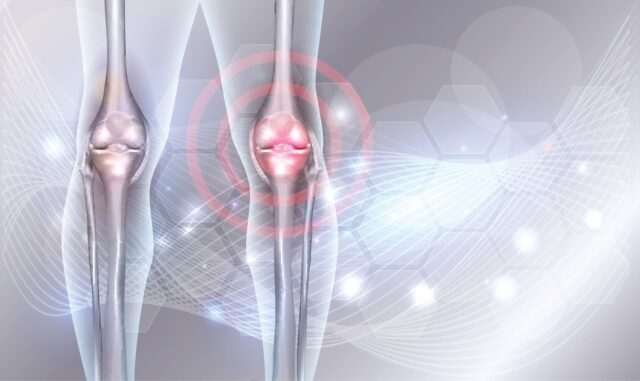Conquering Knee Pain After Skiing in Colorado

Why Skiing in Colorado Increases Knee Strain
Colorado's high-altitude ski resorts can add unique stress to your body. Thin air can lead to fatigue more quickly, impacting your form and increasing the risk of knee injuries. Additionally, Colorado’s variable snow conditions—ranging from powder to icy patches—require skiers to adapt constantly, which can challenge even experienced skiers’ knees. Whether you're tackling black diamond runs in Aspen or enjoying family-friendly slopes at Eldora, the physical demands on your knees are significant.
Common Causes of Knee Pain After Skiing
Knee pain after skiing often stems from overuse, improper technique, or underlying joint issues. Here are some of the most frequent culprits:
- Ligament Strains or Tears: Skiing requires quick directional changes, which can strain or tear the anterior cruciate ligament (ACL) or medial collateral ligament (MCL).
- Meniscus Injuries: The meniscus, a cartilage that cushions your knee joint, is susceptible to damage during twists and landings.
- Patellar Tendinitis: Repetitive knee bending can inflame the patellar tendon, leading to pain at the front of the knee.
- Osteoarthritis: Skiing may aggravate pre-existing arthritis, causing swelling, stiffness, and discomfort.
Understanding the cause of your knee pain is the first step toward effective treatment and recovery.
Signs You Shouldn't Ignore
While some soreness after skiing may be normal, certain symptoms indicate a more serious issue. Seek medical attention if you experience:
- Persistent swelling
- Severe pain during movement
- Difficulty bearing weight on the affected knee
- A popping sound followed by immediate discomfort
- Reduced range of motion
Ignoring these symptoms can lead to prolonged pain or permanent damage, so it's crucial to address them promptly.
Expertise in Treating Knee Pain After Skiing
At MD Pain, we specialize in helping skiers in the Denver Metro and Colorado Springs areas recover from knee pain and injuries. With decades of experience in treating musculoskeletal conditions, our team is well-versed in the specific challenges that skiing presents to your knees. Whether your pain stems from a minor strain or a significant injury, our comprehensive diagnostic approach ensures accurate identification of the problem.
We use advanced imaging and diagnostic techniques to pinpoint the root cause of your knee pain, enabling targeted and effective treatment plans. As part of the Colorado community, we understand the importance of getting you back to your favorite slopes quickly and safely.
Effective Treatment Options for Knee Pain
When addressing knee pain after skiing, a tailored approach is key. Here are some common treatment methods:
- Rest and Activity Modification: Allowing your knee time to heal is crucial for recovery. Reducing skiing frequency or intensity can prevent further strain.
- Cold Therapy: Applying ice packs can reduce inflammation and alleviate pain in the short term.
- Medication: Over-the-counter or prescribed anti-inflammatory drugs may help manage swelling and discomfort.
- Injections: Corticosteroid or hyaluronic acid injections can provide targeted relief, especially for inflammation or arthritis-related pain.
Our team at MD Pain designs customized treatment plans to address your unique condition and lifestyle. We prioritize minimally invasive options to help you recover as efficiently as possible.
Tips for Preventing Knee Pain Before Skiing
Preventative measures can significantly reduce your risk of knee pain and injuries. Incorporate these strategies to protect your knees:
- Warm Up Properly: Engage in dynamic stretches and light exercises to prepare your knees for the demands of skiing.
- Strengthen Supporting Muscles: Building strength in your quads, hamstrings, and glutes enhances knee stability.
- Focus on Form: Proper skiing technique reduces stress on your knees. Consider a refresher course or lessons if needed.
- Use Well-Fitted Gear: Ill-fitting ski boots or improperly adjusted bindings can strain your knees unnecessarily.
- Pace Yourself: Overexertion increases the likelihood of injury. Take breaks to rest and rehydrate.
By incorporating these tips, you can enjoy Colorado’s slopes while minimizing the risk of knee pain.
Why Colorado Skiers Trust MD Pain
MD Pain has become a trusted resource for skiers in the Denver Metro and Colorado Springs areas seeking relief from knee pain. Our team’s deep understanding of skiing-related injuries, combined with state-of-the-art treatment options, ensures optimal outcomes for our patients. Whether you're a beginner or an experienced skier, we’re here to provide expert care tailored to your needs.
Embracing Colorado's Skiing Lifestyle Safely
Skiing is a cherished part of Colorado's culture, offering breathtaking views and adrenaline-pumping adventures. Don't let knee pain hold you back from enjoying this beloved activity. With the right care and preventative measures, you can hit the slopes with confidence and comfort.
At MD Pain, we’re committed to helping you overcome knee pain and regain your active lifestyle. If you’re struggling with knee pain after skiing, contact us today to schedule a consultation and start your journey to recovery.
